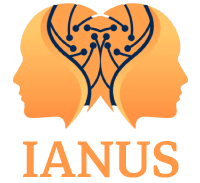IANUS partner Karlsruhe Institute of Technology (KIT) conducted a historical case study on issues of trust in and with respect to the emerging field of quantum technologies. Despite the successes of quantum physics, there are questions such as the measurement problem (how a measurement point emerges from a probability distribution of the state of a quantum system) that have remained unanswered for decades and affect the understanding of ‘reality’, which in turn is fundamentally linked to trust in what is and what is not.
The measurement problem could also have a negative impact on trust in quantum technologies. However, there are differing views on the importance of the measurement problem for trust in this emerging field of technologies. Some argue that quantum physics can simply “be applied” and therefore trust issues can only arise from an uninformed debate fueled by misguided or malicious actors hijacking the discourse and using the measurement problem as a (flawed) argument. On the other hand, it can be argued that the current shortcomings of quantum theory should be discussed and not hidden in public science communication. However, it is crucial that too much attention is not paid to highly speculative ideas in this context and, in particular, that the public is not misled into believing that (the quite widespread) ‘quantum mysticism’ – metaphysical beliefs and practices that attempt to link ideas about consciousness and intelligence, spirituality or mystical worldviews with quantum science – is part of quantum science and technology development.
In this view, there is a need for an open and transparent debate within the quantum science community about uncertainties and theoretical questions that can demonstrate in public the qualities of scientific skepticism, thinking and discourse. This is where educators and communicators could play a key role in communicating the complexity of the measurement problem to students, the general public and even other scientists without reinforcing the lure of quantum mysticism. A communication strategy for quantum technology could therefore include an approach that soberly and transparently explains the various concepts and interpretations of the measurement problem and their interrelationships, as well as the uncertainties underlying quantum mechanics. Discussing these uncertainties would also mean fostering a discourse on how scientific results come about and how reliable results and technologies emerge, in which it may also become clearer that science can be trustworthy despite or precisely because of such acknowledgements of uncertainties in ongoing research.
